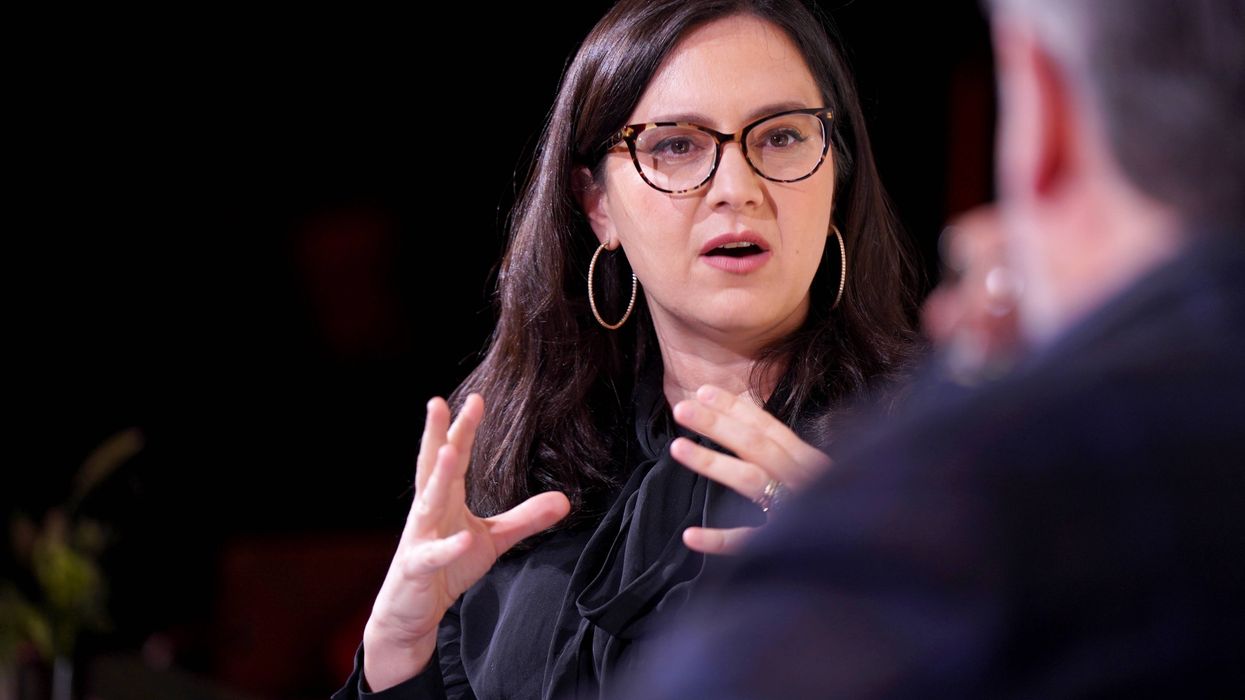These include lies about noncitizen voters that some of the most powerful online influencers are spreading, including Bad Actor Number One — X owner and far-right propagandist Elon Musk. Last week, he marked his second anniversary at the platform’s helm by continuing to boost the false claim that Democrats were transporting hundreds of thousands of undocumented immigrants into battleground states to skew the vote toward the party's candidates.
Again, none of this is true. “Election experts agree that noncitizens voting in federal elections is virtually nonexistent” reports Issue One, a national pro-democracy group that works to strengthen and defend the country’s election systems.
The money driving the disinformation
In its most recent report, Issue One revealed some of the dark web of secretive donors supporting the spread of such election disinformation. It’s a rogues gallery of former Trump administration officials with extensive ties to Project 2025, the far-right effort to dismantle U.S. democracy—and the system of checks and balances at its core—and replace it with an unconstitutional authoritarian regime.
Musk himself is a major source of support for the disinformation cabal. He has funneled tens of billions of dollars into efforts to remake U.S. politics in his image. In 2022, Musk spent $44 billion to take control of Twitter (now X), and has spent tens of millions more in an apparently illegal effort to pay for votes this year in Pennsylvania.
Last week, Wired’s Vittoria Elliott revealed Musk as the money (more than $100 million and counting) behind a political action committee created to compile and amplify false reports of election fraud—and use these lies to disrupt the vote count. Elliott’s reporting links Musk’s effort with the disinformation-spewing “Election Integrity Network” that Issue One exposed.
Shelter from the storm
In the eye of this tornado of lies stand the election workers themselves.
For years, members of this mostly female civic workforce have warned about threats to their safety. In 2021, the U.S. Department of Justice set up its Elections Threat Task Force to assess threats of violence against election workers and, when needed, prosecute those who act on these threats.
Over and again tech execs like Musk and Mark Zuckerberg demonstrate their true values when they choose not to spend more on election protection.
David Becker, founder of the Center for Election Innovation and Research, has led efforts to safeguard U.S. election processes, paying particular attention to the election administrators and public servants who voters encounter as they cast their ballots. “The fact is somehow the hundreds of thousands of election workers and the millions of volunteers who worked on the 2020 election managed the highest turnout we had ever had in American history,” he said during a recent Free Press webinar. And they did so, Becker added, in the middle of a global pandemic.
“Their work has withstood four years of more scrutiny than any election … in world history,” he said. In that time, Becker noted, they’ve been threatened and harassed “not because they did a bad job, but because they did an outstanding job. They’re American heroes in many ways [but] as we head into this election, they're exhausted.”
Unfortunately, these heroes aren't getting any relief from the technology platforms, which have retreated from previous commitments to safeguard election integrity. And this retreat isn’t just happening at Musk’s X.
X is backsliding, but so are other platforms
In an analysis released on Nov. 1, my colleague Nora Benavidez and I found that nearly every platform has avoided dialogue and accountability around the elections. “With few exceptions, the election-integrity problem has worsened since a 2023 Free Press research report found that the largest and most widely used platforms—Meta, X, and YouTube—were backsliding on commitments they made in the wake of the 2020 elections, as ‘Big Lie’ content overwhelmed much of social media,” we wrote.
Recent reporting and research indicate a trend of declining social-media engagement on public posts that provide useful information about the voting process, including information that would debunk the sorts of lies that vilify election workers. This trend has been documented most extensively on Meta-owned platforms, including Facebook, Instagram and Threads, that have hundreds of millions of users in the United States. According to Free Press’ 2024 polling, more than half of voting-age Americans are using social-media apps to access news this election cycle. These platforms have the expertise to implement election-integrity measures. They have the resources to invest in human moderators and staffing. But over and again tech execs like Musk and Mark Zuckerberg demonstrate their true values when they choose not to spend more on election protection.
Poll workers pay the cost of this negligence. With more and more people in the United States using social networks as a source of news and information about voting, it falls on companies like Google, Meta, and TikTok to stop recycling widely disproved lies about the voting process and stand with election workers in defense of our democracy.
But don’t let the swarm of lies keep you from the polls. “What the voters of this country are experiencing is that voting for the vast majority of people is going to be convenient and easy and secure and safe,” Becker said during the Free Press webinar.
“And that’s the message I really want voters to understand … as some people might be on the fence wondering whether they should turn out or not. Turn out and vote. You’re going to have a good experience.”
Let’s hope he’s right.




